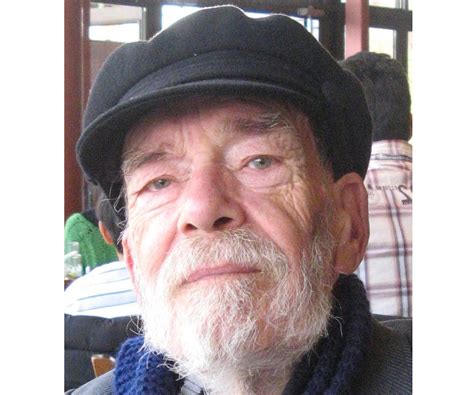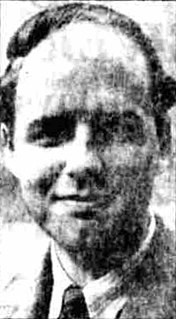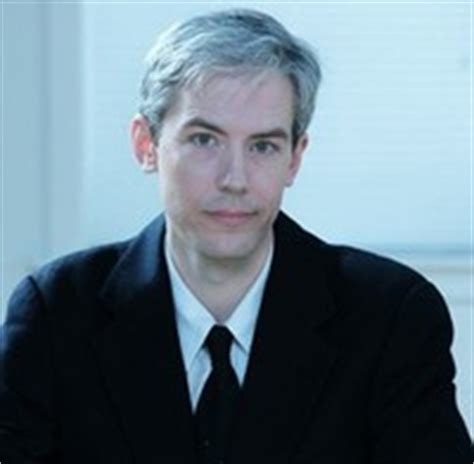A Quote by Ammon Hennacy
Despite the popular idea of anarchists as violent men, Anarchism is the one non-violent social philosophy.… The function of the Anarchist is two-fold. By daily courage in non-cooperation with the tyrannical forces of the State and the Church, he helps to tear down present society; the Anarchist by daily cooperation with his fellows in overcoming evil with good-will and solidarity builds toward the anarchistic commonwealth which is formed by voluntary action with the right of secession.
Quote Topics
Action
Anarchism
Anarchist
Builds
Church
Commonwealth
Cooperation
Courage
Daily
Despite
Down
Evil
Fellows
Fold
Forces
Formed
Function
Good
Helps
His
Idea
Men
Overcoming
Overcoming Evil
Philosophy
Popular
Present
Right
Secession
Social
Society
Solidarity
State
Tear
Toward
Two
Tyrannical
Violent
Voluntary
Which
Will
Related Quotes
The dictionary definition of a Christian is one who follows Christ; kind, kindly, Christ-like. Anarchism is voluntary cooperation for good, with the right of secession. A Christian anarchist is therefore one who turns the other cheek, overturns the tables of the moneychangers, and does not need a cop to tell him how to behave. A Christian anarchist does not depend upon bullets or ballots to achieve his ideal; he achieves that ideal daily by the One-Man Revolution with which he faces a decadent, confused, and dying world.
In my humble opinion, non-cooperation with evil is as much a duty as is cooperation with good. But in the past, non-cooperation has been deliberately expressed in violence to the evildoer. I am endeavoring to show my countrymen that violent non-cooperation only multiplies evil and that evil can only be sustained by violence. Withdrawal of support of evil requires complete abstention from violence. Non-violence implies voluntary submission to the penalty for non-cooperation with evil.
The idea of direct action against the evil that you want to overcome is a kind of common denominator for anarchist ideas and anarchist movements. I think one of the most important principles of anarchism is that you cannot separate means and ends. Anarchism requires means and ends to be in line with one another. I think this is in fact one of the distinguishing characteristics of anarchism.
No doubt that anarchist ideas are frightening to those in power. People in power can tolerate liberal ideas. They can tolerate ideas that call for reforms, but they cannot tolerate the idea that there will be no state, no central authority. So it is very important for them to ridicule the idea of anarchism to create this impression of anarchism as violent and chaotic. It is useful for them.
I am in total opposition to any institutional power. I favor a world of neighborhoods in which all social organization is voluntary and the ways of life are established in small, consenting groups. These groups could cooperate with other groups as they saw fit. But all cooperation would be on a voluntary basis. As the French anarchist Proudhon said. “Liberty [is] not the daughter but the Mother of Order.
Odonianism is anarchism. Not the bomb-in-the-pocket stuff, which is terrorism, whatever name it tries to dignify itself with, not the social-Darwinist economic 'libertarianism' of the far right; but anarchism, as prefigured in early Taoist thought, and expounded by Shelley and Kropotkin, Goldman and Goodman. Anarchism's principal target is the authoritarian State (capitalist or socialist); its principle moral-practical theme is cooperation (solidarity, mutual aid). It is the most idealistic, and to me the most interesting, of all political theories.
I think that all moralities adequately serving the function of fostering social cooperation must contain a norm of reciprocity - a norm of returning good for good received. Such a norm is a necessity, I argue, because it helps relieve the strains on motivation of contributing to social cooperation when it comes into conflict with self-interest.
I am NOT an anarchist. Never have been, never will be. Just because Crimethinc put out two of my poetry books, I am labeled everywhere as an anarchist poet. I am a poet, yes. Not an anarchist. I have no formulated political philosophy other than a general feeling of disgust for the majority of the human race.
It is tempting to believe that social evils arise from the activities of evil men and that if only good men (like ourselves, naturally) wielded power, all would be well. That view requires only emotion and self-praise - easy to come by and satisfying as well. To understand why it is that 'good' men in positions of power will produce evil, while the ordinary man without power but able to engage in voluntary cooperation with his neighbors will produce good, requires analysis and thought, subordinating emotions to the rational.
If we trace origins of anarchism in the United States, then probably Henry David Thoreau is the closest you can come to an early American anarchist. You do not really encounter anarchism until after the Civil War, when you have European anarchists, especially German anarchists, coming to the United States. They actually begin to organize. The first time that anarchism has an organized force and becomes publicly known in the United States is in Chicago at the time of Haymarket Affair.
The term anarchism has become associated with two phenomena with which real anarchist don't want to associate themselves with. One is violence, and the other is disorder or chaos. The popular conception of anarchism is on the one hand bomb-throwing and terrorism, and on the other hand no rules, no regulations, no discipline, everybody does what they want, confusion, etc. That is why there is a reluctance to use the term anarchism.
































